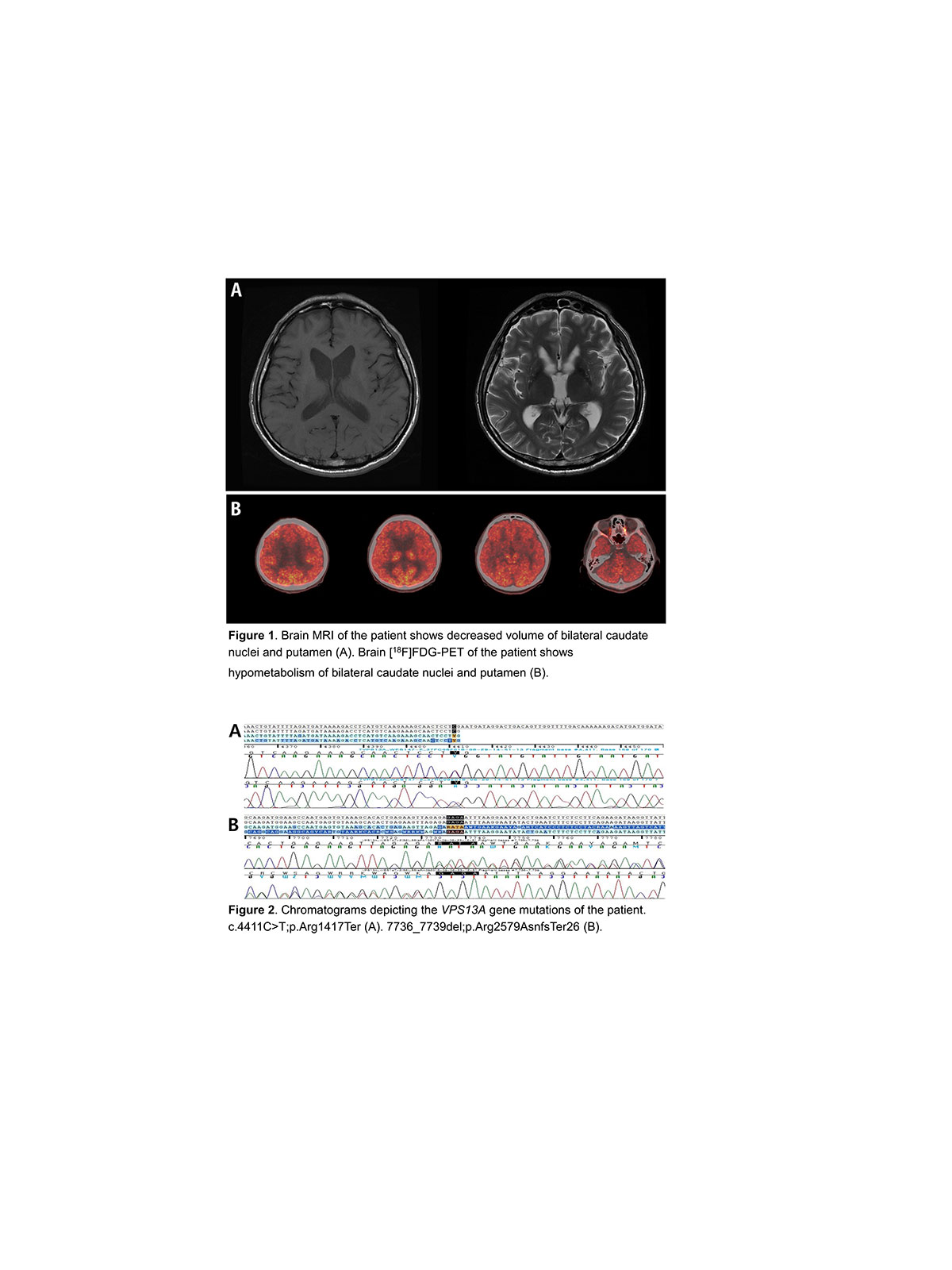Session Information
Date: Monday, September 23, 2019
Session Title: Choreas (Non-Huntington’s Disease)
Session Time: 1:45pm-3:15pm
Location: Les Muses, Level 3
Objective: We hereby report a patient who is genetically confirmed Chorea-acanthocytosis (ChAc).
Background: ChAc is a rare autosomal recessive genetic disorder caused by mutation of the Vacuolar protein sorting 13A (VPS13A) gene. Neurological symptoms include mixed movements (chorea, dystonia, tics, and ), peripheral neuropathy, myopathy, seizures, and psychiatric problems.
Method: A 47-year old man presented worsening involuntary movements, including generalized chorea and dystonia. He had no recognized family history of neurological illness. A peripheral blood smear showed increased . Serum creatine kinase was 1382 U/L. Results of nerve conduction study and showed mainly peripheral neuropathy combined with . Brain magnetic resonance imaging showed atrophy of bilateral putamen and caudate nucleus. 18FFP-CIT showed mildly decreased presynaptic dopamine transporter binding in both caudate , and [18FFDG-PET demonstrated marked in both caudate and putamen.
Results: Whole exome sequencing was performed and finally revealed novel pathogenic mutations of the VPS13A gene (c.4411C>T;p.Arg1417Ter and c.7736_7739del;p.Arg2579AsnfsTer26).
Conclusion: VPS13A is associated with autosomal recessive chorea-acanthocytosis, a diagnosis consistent with the phenotype observed in this case. Clinical characteristics and laboratory findings provide diagnostic clues and genetic testing provides a definitive diagnosis.
To cite this abstract in AMA style:
H. Ryu, C. Hong, J. Lee. Genetic diagnosis of Chorea-acanthocytosis using whole exome sequencing revealed novel VPS13A Gene mutation [abstract]. Mov Disord. 2019; 34 (suppl 2). https://www.mdsabstracts.org/abstract/genetic-diagnosis-of-chorea-acanthocytosis-using-whole-exome-sequencing-revealed-novel-vps13a-gene-mutation/. Accessed February 1, 2026.« Back to 2019 International Congress
MDS Abstracts - https://www.mdsabstracts.org/abstract/genetic-diagnosis-of-chorea-acanthocytosis-using-whole-exome-sequencing-revealed-novel-vps13a-gene-mutation/

